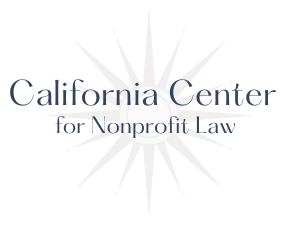
TG 3-31: Foundation Classification – Type I Supporting Organizations – IRC Section 509(a)(3), Publication 6015
Generally, charities prefer to be classified by the Internal Revenue Service (IRS) as public charities instead of private foundations. The reason behind this preference is that regulatory oversight, restrictions, and filing requirements are far stricter for private foundations than they are for public charities.
Some charities achieve public charity status by having a supporting organization, which is a charity that supports one or more different exempt organizations. The exempt organizations that a supporting organization supports typically are other public charities. However, to be eligible as a public charity, the supporting organization must maintain a sufficient relationship with the supported organization to ensure that it is effectively supervising or paying close attention to the supporting organization’s operations. The supporting organization must qualify under the IRS definition of a Type I, Type II, or Type III supporting organization to provide the supported organization with public charity status.
Understanding the proper classifications of your charitable organization under the Internal Revenue Code is crucial to ensuring that you remain compliant with the IRS. The California Center for Nonprofit Law can inform you of the often complex legal requirements that apply to your organization and help you maintain compliance with all federal, state, and local laws and regulations.
Updated Technical Guidance for Type I Supporting Organizations
The IRS recently updated its technical guidance for exempt organizations. One of these guidance documents is Publication 6015 or TG 3-31, which addresses the requirements that 501(c)(3) organizations must meet to qualify as Type I supporting organizations under Internal Revenue Code (IRC) Section 509(a)(3).
Defining Type I Supporting Organizations
According to TG 3-31, a Type I supporting organization is “operated, supervised, or controlled by its supported organization(s).” The hallmark of this relationship is the publicly supported organization’s substantial degree of control over the decision-making of the supporting organization, which is like a parent-subsidiary relationship.
Qualifying as a Type I supporting organization requires the organization to satisfy four requirements, as measured by the following:
- Organizational Test
- Operational Test
- Relationship Requirement
- Control Test
The failure of an organization to meet any of the four requirements results in it being disqualified as a Type I supporting organization.
Organizational Test
Treas. Reg. 1.509(a)-4(b)(1) states that a supporting organization must be organized exclusively for the benefit of, to perform the functions of, or to carry out the purposes of one or more specified supported organizations. As a result, the organizing document for the supporting organization must meet all the following requirements:
- Limit the purposes of the organization to benefiting, performing the functions of, or carrying out the purposes of one or more specified organizations described in Sections 509(a)(1) or (2);
- Not expressly empower the organization to engage in activities that are not in furtherance of the authorized purposes;
- State the specified publicly supported organizations on whose behalf the organization is to be operated; and
- Cannot expressly empower the organization to support or benefit any organization other than the specified publicly supported organizations.
Operational Test
Again, as per Treas. Reg. 1.509(a)-4(b)(1), a supporting organization also must be operated exclusively for the benefit of, to perform the functions of, or to carry out the purposes of one or more specified supported organizations. Therefore, a Type I supporting organization must engage solely in activities that support or benefit the publicly support organization(s) with which it is affiliated.
Examples of qualifying supportive or beneficial activities include:
- Making payments to or for the use of, or
- Providing services or facilities for individual members of the charitable class benefited by the specified publicly supported organization.
Treas. Reg. 1.509(a)-4(e)(2) states that a Type I supporting organization can meet the operational test by using its income to carry on an independent activity or program. In turn, that independent activity or program must benefit the supported organization(s). Likewise, a supporting organization may conduct fundraising activities for its supported organization(s) or its permissible beneficiaries.
Relationship Requirement
The relationship requirement refers to the structure and interaction of the supporting and supported organizations. A Type I supporting organization must be operated, supervised, or controlled by one or more supported organization(s). The supporting organization must be responsive to the needs or demands of the supported organization. It also must have significant involvement in the operations of the supported organization(s) to the extent that it is crucial to its operations.
Alternatively, Treas. Reg. 1.509(a)-4(g)(1)(ii) states that a supporting organization may still meet the relationship requirement even when its governing body is not comprised of representatives of its specified publicly supported organizations. More specifically, as TG 3-31 states:
A supporting organization may have a Type I relationship (operated, supervised, or controlled by) with one or more publicly supported organizations and be operated for the benefit of one or more different publicly supported organizations only if it can demonstrate that the purposes of the former organization(s) (controlling organization(s)) are carried out by benefitting the latter organizations (specified publicly supported organizations).
Additionally, a Type I supporting organization may not accept a gift or contribution from certain controlling donors under Treas. Reg. 1.509(a)-4(f)(5). These controlling donors include:
- A person who directly or indirectly controls, either alone or together with persons described below, the governing body of the supported organization
- A member of the family of an individual described above; or
- A 35% controlled entity in which persons described above own more than 35% of the total:
- Combined voting power (for a corporation);
- Profits and interest (for a partnership); or
- Beneficial interest (for a trust or estate).
Control Test
The control test requires that a supporting organization not be controlled directly or indirectly by one or more disqualified person(s). The definition of disqualified persons for the purposes of the control test is found in Section 4946. However, this definition excepts Section 509(a)(1) or 509(a)(2) organizations or a foundation manager of the supporting organization who is not a disqualified person for another reason.
Once an individual is disqualified, they continue to be disqualified even if the supported organization appoints or elects them to a position as director, trustee, or officer of the supporting organization.
For the purposes of the control test, disqualified persons include the following:
- A substantial contributor to the supporting organization, or a person who has given more than $5,000 to the supporting organization if this amount is also more than 2% of the total amount given by the end of the taxable year;
- A creator of a trust that is a substantial contributor to the supporting organization;
- An owner of more than 20% of the:
- Combined voting power of a corporation;
- Profit interest of a partnership; or
- Beneficial interest of a trust or unincorporated enterprise, which is a substantial contributor to the supporting organization;
- A family member of one of the above individuals; or
- A corporation, partnership, or trust in which one of the above persons owns more than 35% of the combined voting power, profit interest, or beneficial interest.
Call the California Center for Nonprofit Law Today
We gear our practice to legal matters that affect nonprofit organizations, churches, and other religious organizations in California. Together, we can ensure that you remain current on federal and state laws and policies as they develop. Contact an experienced nonprofit lawyer today. Call the California Center for Nonprofit Law offices at (949) 892-1221, email us at info@NPOlawyers.com, or contact us online for more information today.
